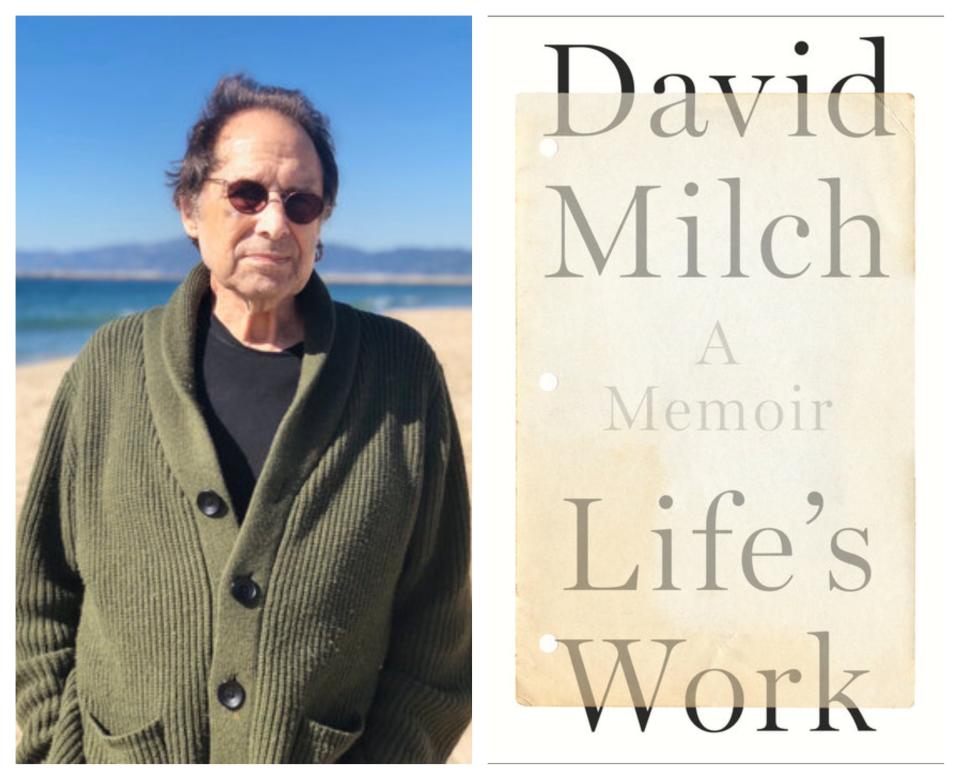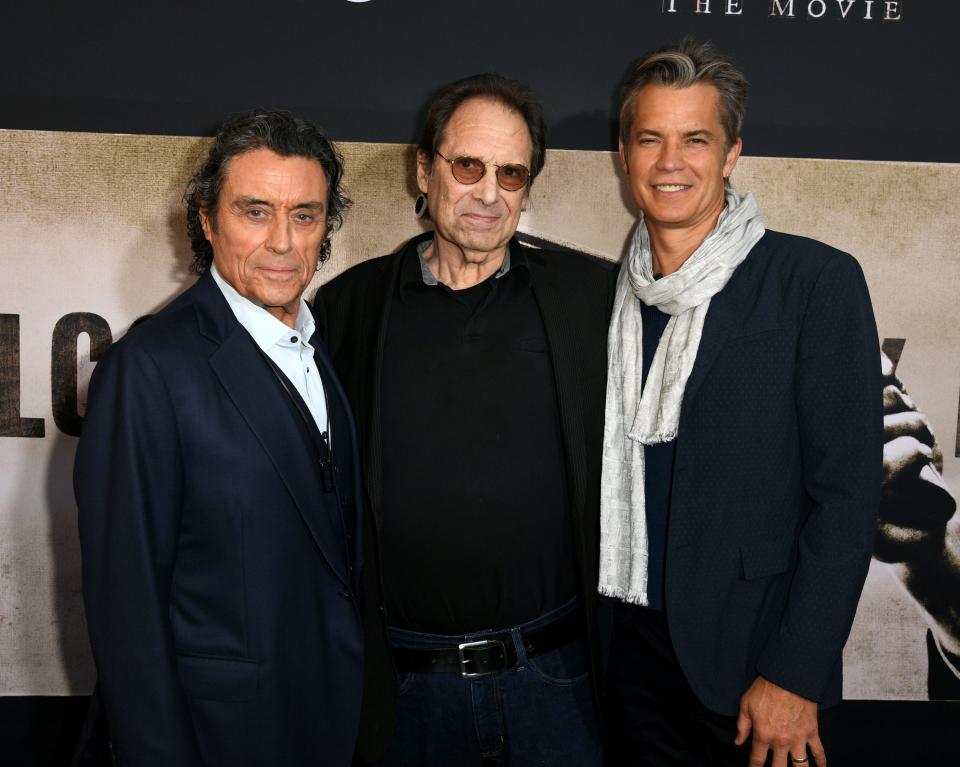David Milch, co-creator of 'NYPD Blue,' reflects on 'Life's Work' as he suffers Alzheimer’s
- Oops!Something went wrong.Please try again later.
- Oops!Something went wrong.Please try again later.
- Oops!Something went wrong.Please try again later.
David Milch believes in the power of story to heal, to alchemize the ample pain that life offers into something transcendent and redemptive.
He certainly knows the pain part: an alcoholic father who just assumed his son would be a failure and even welcomed the prospect; tenacious addictions of his own, including heroin, booze and gambling; and now, Alzheimer’s disease, which is slowly eroding his beautiful mind. And so the master storyteller behind shows including “NYPD Blue” and “Deadwood” continues to write, in this case, a deeply introspective memoir, “Life’s Work” (Random House, 304 pp., ★★★★ out of 4 stars), that certainly doesn’t read like the work of a man losing his faculties.
From Jagger to Lennon, Dylan to Bono: Rolling Stone founder Jann Wenner spills the tea in memoir
Not surprisingly, Milch’s memoir is devoid of both chest-puffing and self-pity; nonsense has a way of scurrying from his path. He takes pride in his accomplishments but proves just as willing to dissect his failures (and in the TV business, nobody is without failures). He tracks his shows from inception (he originally conceived of “Deadwood” as a series about Paul the Apostle in Rome) to denouement (the series ended far sooner than he or anyone else involved would have liked).

More importantly, he takes the reader down an unabashedly spiritual path of artistic creation. “Life’s Work” should speak to those who recognize the meaning to be derived from the small screen, as well as anyone who doubts that TV, in the right hands, can convey great truths about humanity.
Take this observation, regarding a particularly resonant episode of “NYPD Blue”: “You work with your eyes, and you try not to blink, and you listen, and you try not to turn away from all the different complexities of feeling. You let yourself feel all of the contradictions, and if you are able to render a world in sufficient complexity, then it all gets told.” Milch lives for those complexities, the moments of profanity in the sacred (those who know his work know how much he loves the power of profanity). He finds the holy in the everyday.
From TGIF to NSFW: 'Boy Meets World' star Maitland Ward talks breaking free from Hollywood for porn
Milch is very much grounded in the discipline of language and storytelling. At Yale, he studied literature with Robert Penn Warren, even as he was making a shambles of his personal life (to this day he unfailingly refers to the late “All the King’s Men” author as “Mr. Warren”). He moved out to Los Angeles and eventually made a lot of money, which allowed him to indulge in his vices, including extravagant spending. Usually an attentive father and husband, he spent millions purchasing and betting on horses (he inherited his father’s compulsion to play the ponies) and gave freely to friends in need.

On the set, he was known to write until the last second, a habit that led Jimmy Smits to leave “NYPD Blue.” To Milch, a production was a living organism, never a finished work until it was ready to air. His career had more than a few bumps, including “Luck,” the HBO horse racing series that was canceled after controversy over the death of three horses . But when he hit his stride, and the right circumstances conspired, there was nobody better. “Deadwood” belongs in the television pantheon, both an utterly unique drama and an indelible contribution to the western genre.
“Life’s Work” is a brave piece of writing, a taking of stock that digs uncommonly deep, from a man much closer to the end than the beginning. If all memoirs were this honest, it would serve the genre well.
This article originally appeared on USA TODAY: David Milch: 'Deadwood' creator looks back on 'Life's Work' in memoir

